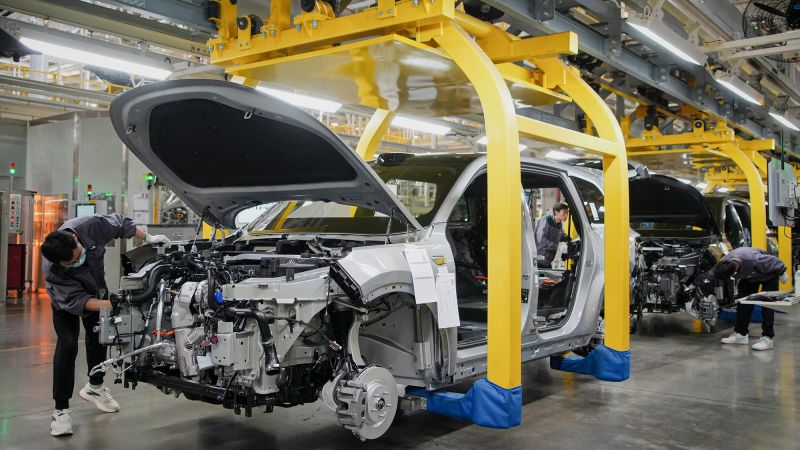According to the International Energy Agency, global electric vehicle (EV) sales are projected to increase by more than 20%, reaching 17 million this year. The demand for EVs is expected to continue to rise over the next decade, reshaping the global auto industry and reducing oil consumption for road transport. The IEA predicts that by 2035, half of all cars sold globally will be electric, provided that charging infrastructure keeps pace.
Despite financial pressure on automakers due to price cuts, they are crucial for increasing EV uptake worldwide, as affordability plays a key role in the transition to electric vehicles. In China, over 60% of EVs sold last year were less expensive than conventional cars, but in Europe and the United States, the purchase price for new cars with internal combustion engines remains lower on average. Market competition and advancements in battery technologies are expected to drive down EV prices, with growing exports from Chinese automakers adding to this downward pressure.
China is leading the way in EV adoption, accounting for almost 60% of global EV sales this year and projected to have almost one in three cars on the roads as electric by 2030. This shift is expected to have significant implications for both the auto industry and the energy sector. The European Union has opened an investigation into state support for Chinese EV makers, amid concerns about rising imports of Chinese EVs. The transition to EVs will have major ramifications for economies heavily reliant on the auto industry, such as Germany, home to major automakers like Volkswagen, Audi, and BMW.
Despite recent price cuts by Tesla and other automakers, the momentum behind electric cars remains strong globally, with the IEA anticipating continued growth in EV sales. Policy support and careful planning are crucial to ensure that the increasing demand for electricity from charging does not overwhelm electricity grids. The number of public EV charging points worldwide is expected to reach 15 million by the end of the decade, a significant increase from last year.
There are challenges facing the EV market, with competition heating up and demand slowing, leading to price wars and squeezed profit margins for automakers. Despite these challenges, the IEA remains optimistic about the future of EVs, emphasizing the importance of affordability and the need for continued support and investment in charging infrastructure. The global EV revolution appears to be entering a new phase of growth, with electric vehicles expected to play a significant role in reducing emissions and transforming the transportation sector in the coming years.


